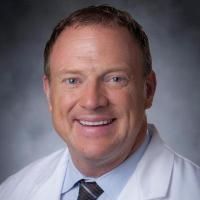Assessments of frailty in bladder cancer.
Date
2020-05-22
Journal Title
Journal ISSN
Volume Title
Repository Usage Stats
views
downloads
Citation Stats
Attention Stats
Abstract
BACKGROUND AND AIMS:The incidence of frailty is increasing as the population ages, which has important clinical implications given the associations between frailty and poor outcomes in the bladder cancer population. Due to a multi-organ system decline and decreased physiologic reserve, frail patients are vulnerable to stressors of disease and have poorer mortality and morbidity rates than their nonfrail peers. The association between frailty and poor outcomes has been documented across multiple populations, including radical cystectomy, creating a need for frailty assessments to be used preoperatively for risk stratification. We aim to provide a review of the common frailty assessments and their relevance to radical cystectomy patients. FINDINGS:A variety of assessments for frailty exist, from short screening items to comprehensive geriatric assessments. The syndrome spans multiple organ systems, as do the potential diagnostic instruments. Some instruments are less practical for use in clinical practice by urologists, such as the Canadian Study of Health and Aging Frailty Index and Comprehensive Geriatric Assessment. The tool most studied in radical cystectomy is the modified Frailty Index, associated with high grade complications and 30-days mortality. Frailty often coexists with malnutrition and sarcopenia, stressing the importance of screening for and addressing these syndromes to improve patient's perioperative outcomes. CONCLUSIONS:There is no universally agreed upon frailty assessment, but the most studied in radical cystectomy is the modified Frailty Index, providing valuable data with which to counsel patients preoperatively. Alterations in immune phenotypes provide potential future diagnostic biomarkers for frailty.
Type
Department
Description
Provenance
Subjects
Citation
Permalink
Published Version (Please cite this version)
Publication Info
Grimberg, Dominic C, Ankeet Shah, Jeroen Molinger, John Whittle, Rajan T Gupta, Paul E Wischmeyer, Shelley R McDonald, Brant A Inman, et al. (2020). Assessments of frailty in bladder cancer. Urologic oncology. 10.1016/j.urolonc.2020.04.036 Retrieved from https://hdl.handle.net/10161/20746.
This is constructed from limited available data and may be imprecise. To cite this article, please review & use the official citation provided by the journal.
Collections
Scholars@Duke

Ankeet Shah

Rajan Tilak Gupta
Abdominal Imaging; Multiparametric MR imaging of prostate cancer; MR imaging of the hepatobiliary system; Applications of dual energy CT in the abdomen and pelvis

Paul Edmund Wischmeyer
Paul Wischmeyer M.D., EDIC, FASPEN, FCCM is a nutrition, exercise, critical care, and perioperative physician-researcher who specializes in enhancing preparation and recovery from surgery, critical care and COVID-19. He serves as a Tenured Professor of Anesthesiology and Surgery at Duke. He also serves as the Associate Vice Chair for Clinical Research in the Dept. of Anesthesiology and Director of the TPN/Nutrition Team at Duke. Dr. Wischmeyer earned his medical degree with honors at The University of Chicago Pritzker School of Medicine, where he was elected into the honor society of Alpha Omega Alpha for outstanding academic achievement. He completed his pediatric internship at University of Colorado Children’s Hospital and his anesthesiology/critical care residency training at the University of Chicago. He also completed a Clinical Pharmacology fellowship and the NIH K30 Clinical Research Scientist Training Program while at University of Chicago.
Dr. Wischmeyer’s clinical and research focus is in critical care, perioperative care exercise, and nutrition to help patients prepare and recover from illness and surgery. His research interests include surgical and ICU nutrition and exercise rehabilitation; role of parenteral, enteral, and oral nutrition to improve patient outcomes; perioperative optimization; post-illness muscle mass and functional recovery; and probiotics/microbiome. His research interests have also recently been focused on COVID-19 research into COVID-19 metabolism, role of probiotics in COVID19 prevention and treatment, and exercise and nutrition programs to recover from COVID-19 and Long COVID-19. Dr. Wischmeyer’s research group has been awarded multiple NIH, DOD, and other peer reviewed grants to perform research ranging from basic mechanistic cell work to large-scale multi-center clinical trials in the fields of critical care, perioperative medicine, nutrition, illness metabolism, microbiome/probiotics, and exercise interventions to improve functional outcomes. For his research work and clinical work, Dr. Wischmeyer has received numerous awards from national and international societies including, The Jeffrey Silverstein Award and Memorial Lecture for Humanism in Medicine from the American Delirium Society, The John M. Kinney Award for the most significant contribution to field of general nutrition, the Stanley Dudrick Research Scholar Award by the American Society for Parenteral and Enteral Nutrition and The Lifetime Achievement Award of the International Parenteral Nutrition Society (IPENEMA) for significant contributions to the field of nutrition. Dr. Wischmeyer has over 200 peer-reviewed publications in critical care, anesthesiology, and nutrition, including in the New England Journal of Medicine. Finally, he has been an invited speaker at numerous national and international medical meetings delivering over 900 invited presentations over his career. He has an H-index of 73 with over 16,500 citations to his work, including 1 publication with > 1000 citations and 55 publications with > 100 citations. He is also the founder and director of the Duke Online Clinical Nutrition Fellowship, an international fellowship to provide clinical nutrition training to healthcare providers worldwide, as well as unique scholarship opportunities for healthcare providers in developing nations.
Dr. Wischmeyer passion for helping patients recover from illness and surgery arises from his personal experiences as both doctor and patient in the ICU. Dr. Wischmeyer has undergone over 27 major surgeries and personally experienced multiple ICU stays due to a childhood GI illness that took more than half of his intestinal tract. Thus, preparation for surgery/critical care and recovery from illness are a way of life for Dr. Wischmeyer that he is passionate about teaching his patients and other caregivers worldwide.

Shelley R McDonald
Unless otherwise indicated, scholarly articles published by Duke faculty members are made available here with a CC-BY-NC (Creative Commons Attribution Non-Commercial) license, as enabled by the Duke Open Access Policy. If you wish to use the materials in ways not already permitted under CC-BY-NC, please consult the copyright owner. Other materials are made available here through the author’s grant of a non-exclusive license to make their work openly accessible.
